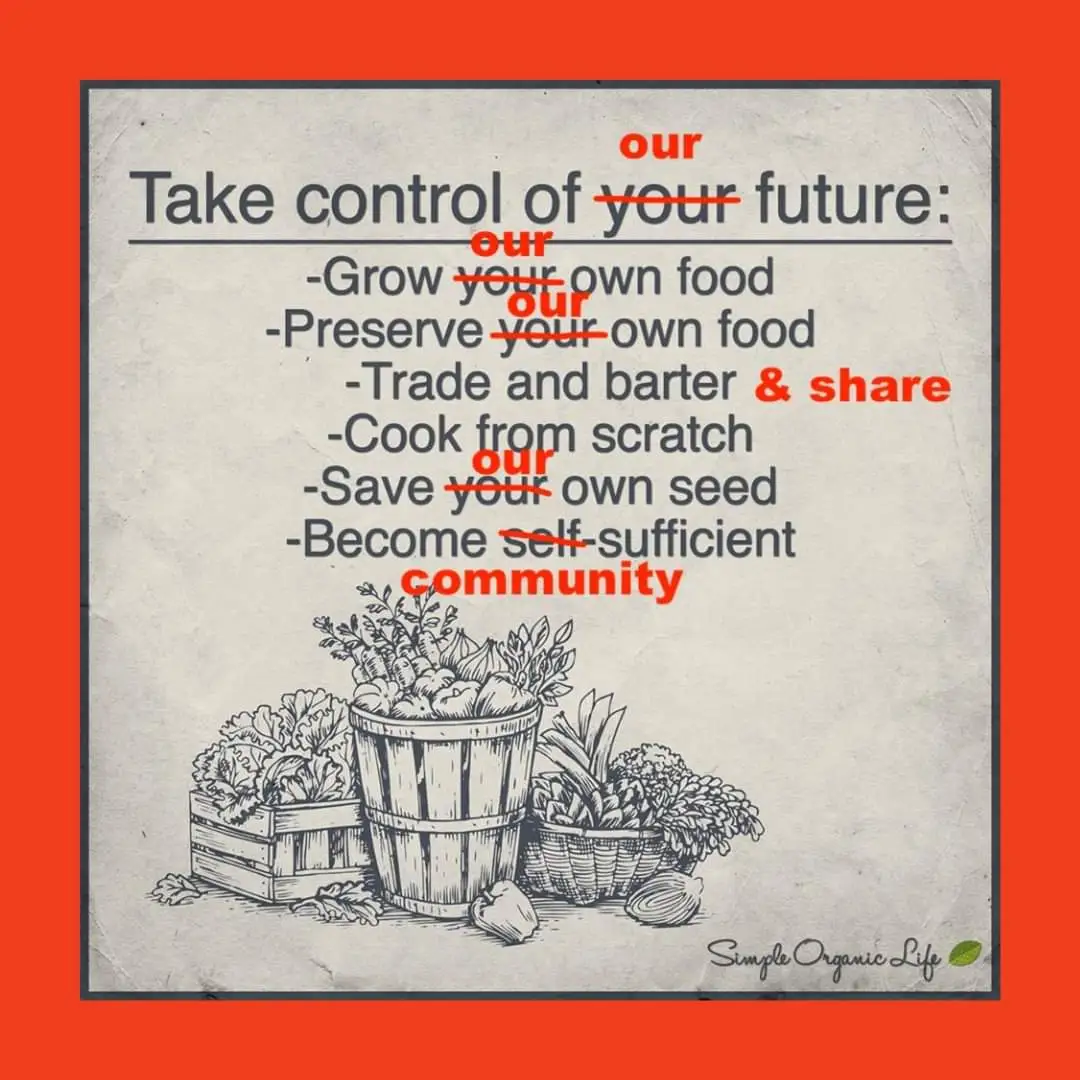Don't get me wrong, having a vegetable garden is still a great thing and far better than buying the monoculture produce shipped from halfway around the world at the store, even if your garden is just for your own family. I don't want to knock that. But to break our reliance on extractivist agriculture as a society requires more than just people with the resources to do it building private homesteads on their private property. Communities providing for each other through the commons is a foundational element of a solarpunk society.
How do we encourage this shift in thinking and doing? What would it take to break down the expectations of private property and that something you've grown is just for you, and create community mindsets where something you've grown can feed people who need it?
Where I live, there are a lot of (mostly retired, suburban, well-off) people with gardens, especially in the summer, but most of them are not involved in FNB or anything like it. It's also not common to emphasize native species. We have a wonderful public market, but most of the people even with veggie gardens don't sell there and only buy there on occasion. The way I've been trying to encourage the public market over grocery stores more has mostly been talking about how great the produce is, how many different things they have, and how convenient it is that the bus runs there. It's still a market, but at least it's small, local growers, and a local org recovers what doesn't get sold for our FNB branch to use (and composts what isn't good, for the local community garden to use) instead of throwing it away. But the only way I can think of to get the idea out there that people should share what they grow is to flat-out say, "you should share what you grow", which doesn't seem like it would win many people over.

If you're in an area with a lot of gardeners, maybe a weekly food swap would work. A place where people can bring their excess harvest to give away or trade for someone else's excess harvest. But you might end up with supply/demand problems (e.g. everyone showing up with too many zucchini and hoping to trade for tomatoes... and then leaving with too many zucchini and no tomatoes). Also, I feel like most excess produce is left unharvested, because harvesting it all would be too much work (especially fruit), or because it is kept around in the garden until it goes bad (I do this with radishes: I take a few every day until they become too pithy then in the compost the remainder goes), so people would have to be motivated and organized enough to harvest excess crops. And then you have the trade problem of making sure everyone feels they benefited from the swap and didn't get taken advantage of ("I harvested my entire fig tree and Sharon shows up with five maggot-riddled beets and that's supposed to be a fair exchange!?")
What you describe is at its core society's under-valuing land: a lack of recognition that arable land in particular is too valuable to society to be held by individual property owners to do whatever the fuck they want with it (including nothing, like using it for lawn, or worse yet degrading the land so it's no longer arable, like paving it or poisoning it with Round-up, garbage, etc). But changing that requires a fundamental shift in our perception of property rights that would take either moving to a commune of like-minded folks who intentionally forgo front yards for a community garden or whatever, or a major crisis like a famine resulting in the government's eminent-domain'ing of underutilized private property.